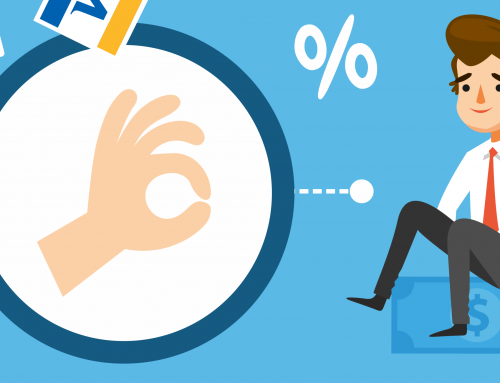 The Save Money Guide 2017 Version
The Save Money Guide 2017 Version
There’s hardly anything more frustrating than struggling with money – especially if you’re making decent money to begin with. You can’t help but ask yourself why it is you can’t get ahead and just save money instead of paying it all away.
On paper, it looks like you’re doing everything right to save money – you try packing a lunch instead of hitting up restaurants, stick to Netflix instead of going to the cinema and yet, all the hard work you do at the job just seems to leave you waiting for the next pay cheque to come.
Sound familiar?
You’re not alone. Millions of Canadians are in the same boat. Money management is truly one of life’s biggest challenges, but we’ve prepared this list for you to point out areas where you might have more money than you think.
Here are 10 habits you can incorporate into your life and save money.
- Keep aside a fixed sum every month towards savings
This is what we call the “pay yourself first” factor. What does pay yourself first mean? That before you pay any of your bills, you set aside a fixed amount you have decided will be an amount you ALWAYS save, no matter what.
Let’s paint you a common scenario – when changing jobs, it often happens that you might have to accept a job that pays a little less than your previous employment did. Not fun, but you do end up adapting, right?
Now pretend that this is what has happened and that your fixed amount is just something you have to live with. Once you just get that sum out of your chequing account and somewhere where it accrues interest, a penny saved truly does become a penny earned. One of the many frugal ways to save money.
- Budget
There are certain fixed costs you simply cannot get away from each month: rent, transportation, food, insurance. Deduct these costs from your monthly pay. Next step is to determine how to manage what’s left.
Budgeting doesn’t mean you have to live a life without pleasure.
The key is to find cheaper alternatives. Example: If you truly want to eat pizza, but don’t want to make it, skip ordering take out (average cost of $25 per pizza) and get a frozen pizza from the grocery store (average cost of $6).
Movies – as mentioned at the beginning of this article, go with Netflix instead of the cinema. The average cost of the cinemas now exceeds $20 per person. Netflix is less than $10 a month and offers you thousands of options.
Don’t overlook apps – there are scores of apps that can help you track your spending to save money. You’d be shocked how setting a fixed daily spending cap will help you get ahead.
- Live within your means
Now that we’ve gone over budgeting, we have to stress the correlated point. Let’s say you enjoy having wine with friends from time to time. Let’s say you earn $3000 a month. What would make more sense?
To invite your friends over and share a couple of $12 bottles of wine ($24 total). Or go out to a club, get bottle service and run up a bill of $300 for two bottles? Option two (bottle service) just cost you a whopping 10% of your income in just one night.
We can run the same example with clothing. If you can’t afford designer brands, just accept it until you can. But there’s no sense in buying $200 jeans when you have the option of buying a pair for $30.
- Pay your bills on time
Here’s a little secret you might not be aware of: most companies actually hope you pay your bills late. Why? Because it gives them the chance to hit you with late fees. It might not seem like much at the time, but late fees can cost you hundreds of dollars a year…and thousands in lost savings.
- Buy a fuel-efficient, used car
Cars can be a major sticking point, but switching to a smaller, more fuel efficient model can save money on gas, but also on insurance, too.
- Save for the future
Are you familiar with a TFSA account? It’s a Tax Free Savings Account or a Registered Retirement Savings Plan to help you save money and not pay taxes on that saved money. A well balanced portfolio calls for safe investments (low risk RRSPs, for example), and a little money placed on more aggressive stocks that have a chance of growing at a very rapid rate.
If the only thing you have to look forward to in old age is your pension and nothing else, it can make for a very hard life.
- Consolidate your debts
Juggling multiple interest rates can not only be challenging, but it can cost you a lot of money in the long run as well as cause you stress you shouldn’t have to be going through. One of the best ways to beat high interest rates and pull yourself out of debt faster is to consolidate your debts.
It’s really not as hard as you think to find debt consolidation at lower rates than what you’re presently paying. Here’s how Loan Away can help you with debt consolidation.
- Keep your credit strong
Credit should be considered like a golden ticket to more money. When your find yourself with a need for extra cash, nothing comes in more handy than a good rating, which opens many doors. As challenging as it may be, paying off your bills on time, be it bills or loans is imperative to staying in good standing.Even if you have to make minimum payments, that is far better than skipping payments altogether. That way, you never get any black marks against your credit. Here are some useful tips to improve your credit score.
- Know how Loans work
Time is money and losing time does, in fact, mean losing money. Case in point; if you find yourself in a situation where you need a loan, you need to look into things carefully. See, if you go to a conventional bank, a loan can take as long as 7 to 10 business days…and even after all that time, you could be declined (happens often enough).
If you go with payday loans, you’ll find yourself facing extremely high-interest rates and you have to repay the money faster than you might be able to afford to.If you don’t have the best credit, there’s still a way you can get a loan in spite of having bad credit.
- Prepare for the unexpected
Life happens – in the budgeting section we talked about fixed monthly costs such as rent and transportation, but that, of course, does not include the unexpected costs that just happen.
Example: you hit a pothole at high speed and find yourself with $800 in repairs. Or what if you have a pet and that pet suddenly came down with a severe illness? That’s another sudden $1000 or so in expenses.
If you happen to be short on cash or credit when life happens, those unexpected expenses could cause severe financial stress. Just as we discussed that you should that you should pay yourself first and set aside a fixed amount for savings, you should also set aside for a ‘rainy day’ fund.
I found that this money saving article really helped saving money for Canadians
Wealthy motivational speaker Jim Rohn Says, “Success is nothing more than a few simple disciplines, practiced every day.” What this means is, you might not nail everyone of these new habits right off the bat, but by doing your best to embrace and master one new habit at a time, you’ll see a major difference in just a few months.



